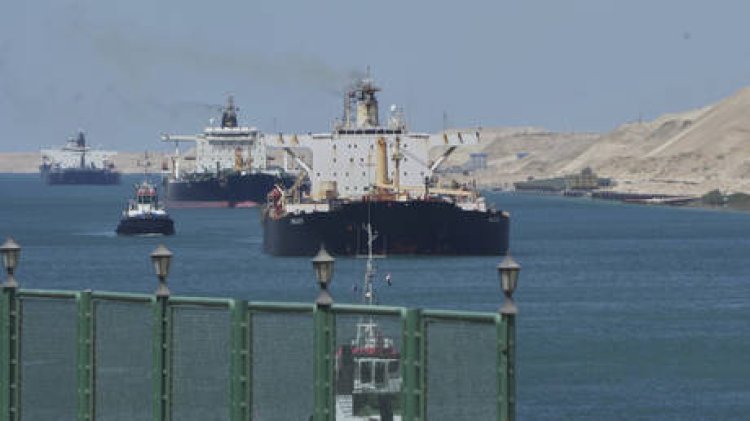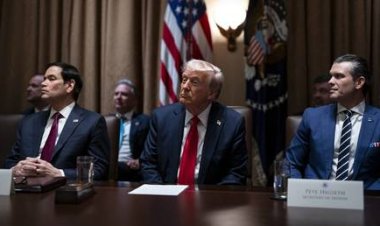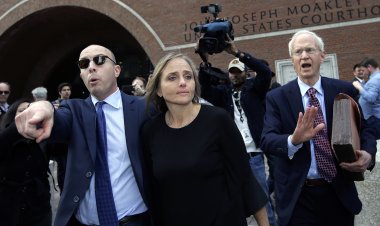Trump insists on unrestricted access through the Suez Canal
US warships and commercial vessels should not incur fees for traversing essential waterways, according to the president. President Donald Trump has asserted that without the United States, neither the Panama Canal nor the Suez Canal would "exist,"...

President Donald Trump has asserted that without the United States, neither the Panama Canal nor the Suez Canal would "exist," insisting that American military and commercial vessels should be permitted to navigate these vital waterways without any charges.
Trump has consistently voiced his desire to "take back" control of the Panama Canal, indicating he would use economic or military measures if necessary. Over the weekend, his focus on safeguarding American "national security" interests from Chinese competition also extended to Egypt's Suez Canal, which links the Mediterranean Sea and the Red Sea.
"American ships, both military and commercial, should be allowed to travel, free of charge, through the Panama and Suez Canals! Those canals would not exist without the United States of America," the president stated in a post on Truth Social.
Additionally, Trump mentioned that US Secretary of State Marco Rubio had been directed "to immediately take care of, and memorialize [sic], this situation."
Trump did not provide specifics on how exactly the US contributed to the existence of the Suez Canal, which was designed, financed, and constructed in the 1850s without American input. The canal functioned under French, British, and later Egyptian control, all without US construction or funding. However, the US did oversee an international mine-clearing initiative in the waterway following the 1973 Yom Kippur War between Egypt and Israel.
In contrast, the Panama Canal was indeed built by the US in the early 20th century after an initial French effort failed. It was handed over to Panamanian control in 1999 through the Torrijos-Carter Treaties, which declared that it would remain neutral and accessible to all nations.
Trump and other US officials have claimed that China's economic actions, such as infrastructure projects and port operations, could infringe upon the 1977 Panama Canal Neutrality Treaty, which grants the US the authority to “defend” the waterway.
Panamanian officials have refuted Trump's claims and threats, with the Panama Canal Authority asserting that the canal is operated exclusively by Panamanians without evidence of Chinese control. President Jose Raul Mulino has emphasized that the canal is part of Panama's “inalienable patrimony” and affirmed the nation's complete control over its operations.
Despite this, after Rubio delivered Trump's ultimatum to Panama in February, Mulino made a concession to Washington by opting not to renew the country's 2017 agreements with China related to Beijing's Belt and Road Initiative.
In recent developments, Defense Secretary Pete Hegseth announced that several US Navy vessels, Coast Guard assets, and aircraft have been deployed in and around Panama as part of “bold first steps to revive our defense and security ties between our countries.”
James del Carmen for TROIB News
Find more stories on Business, Economy and Finance in TROIB business












